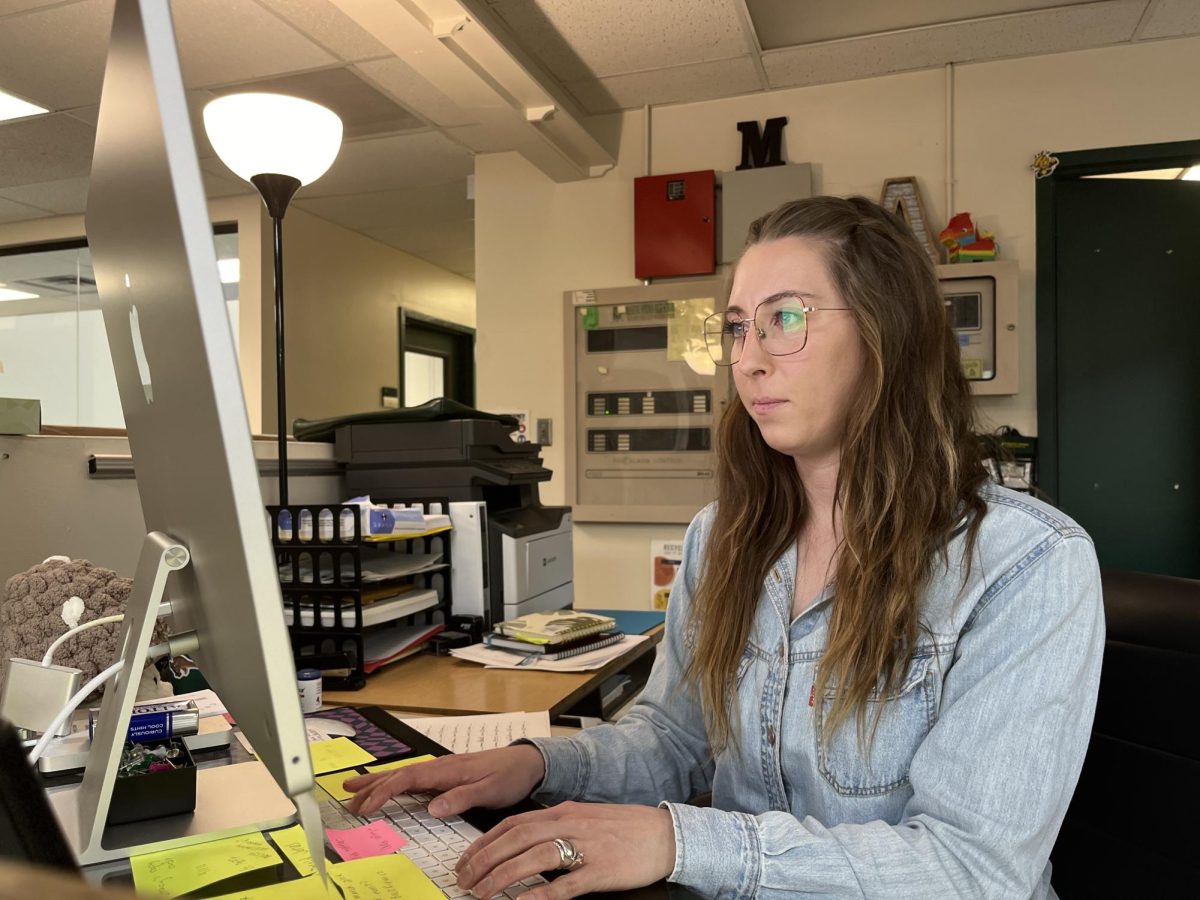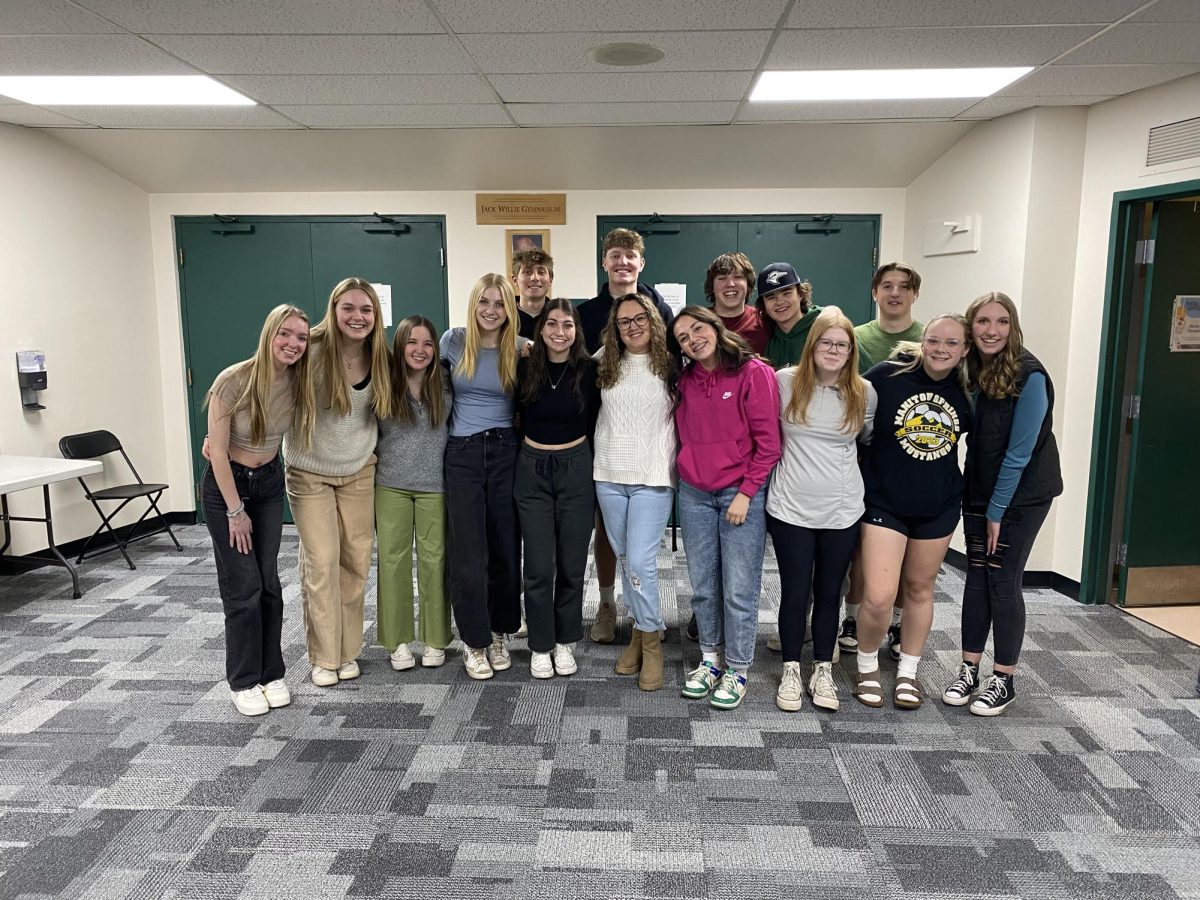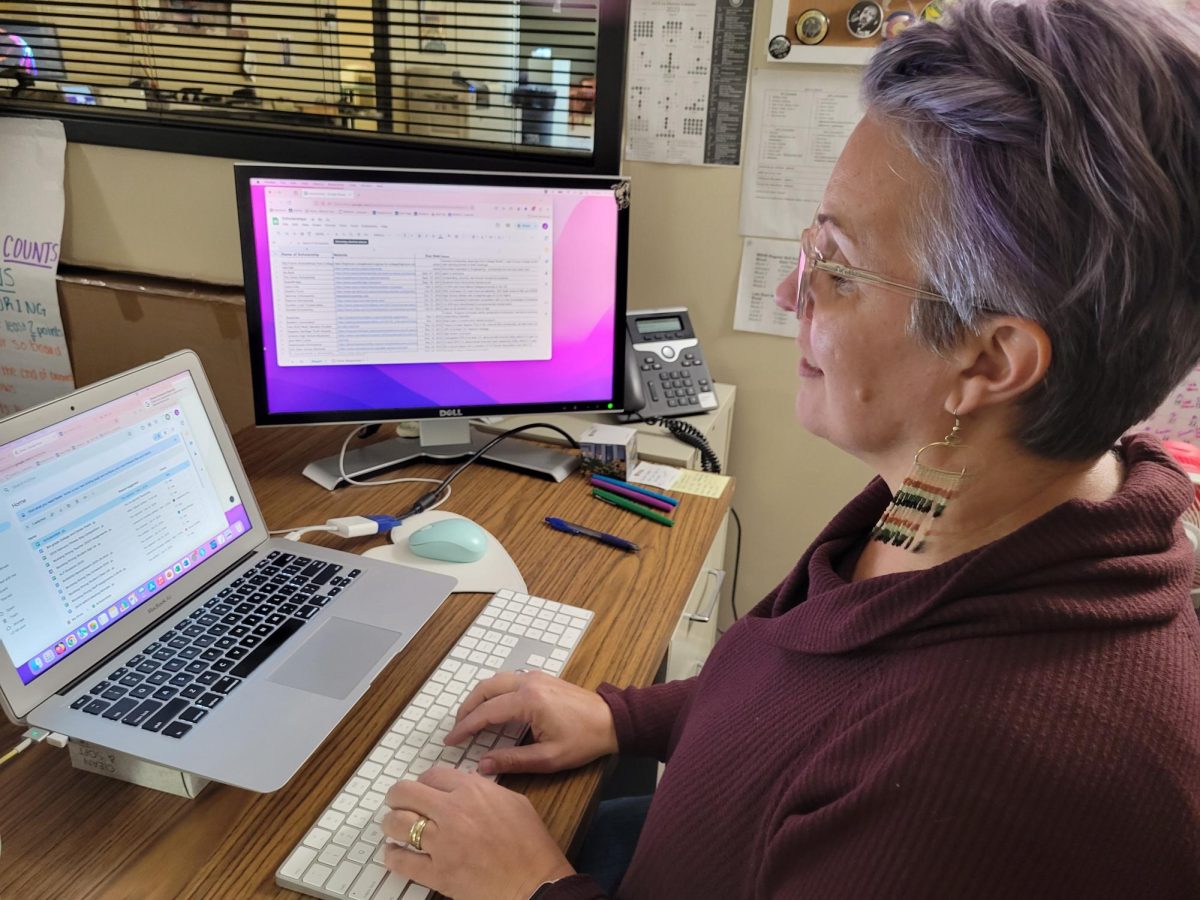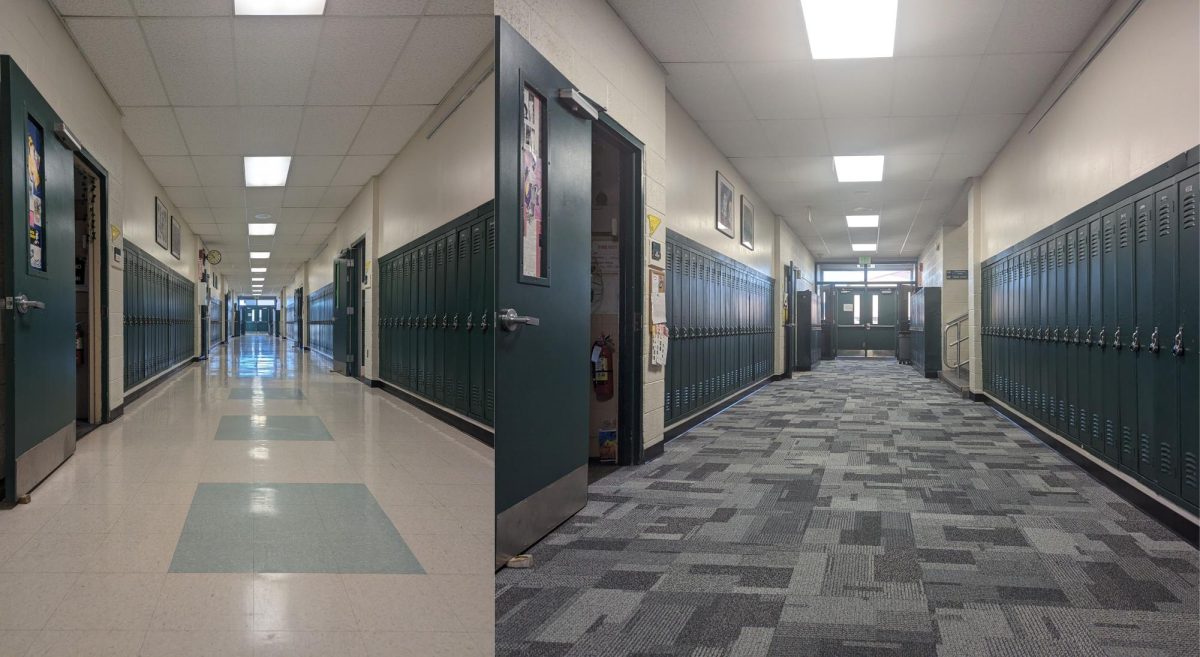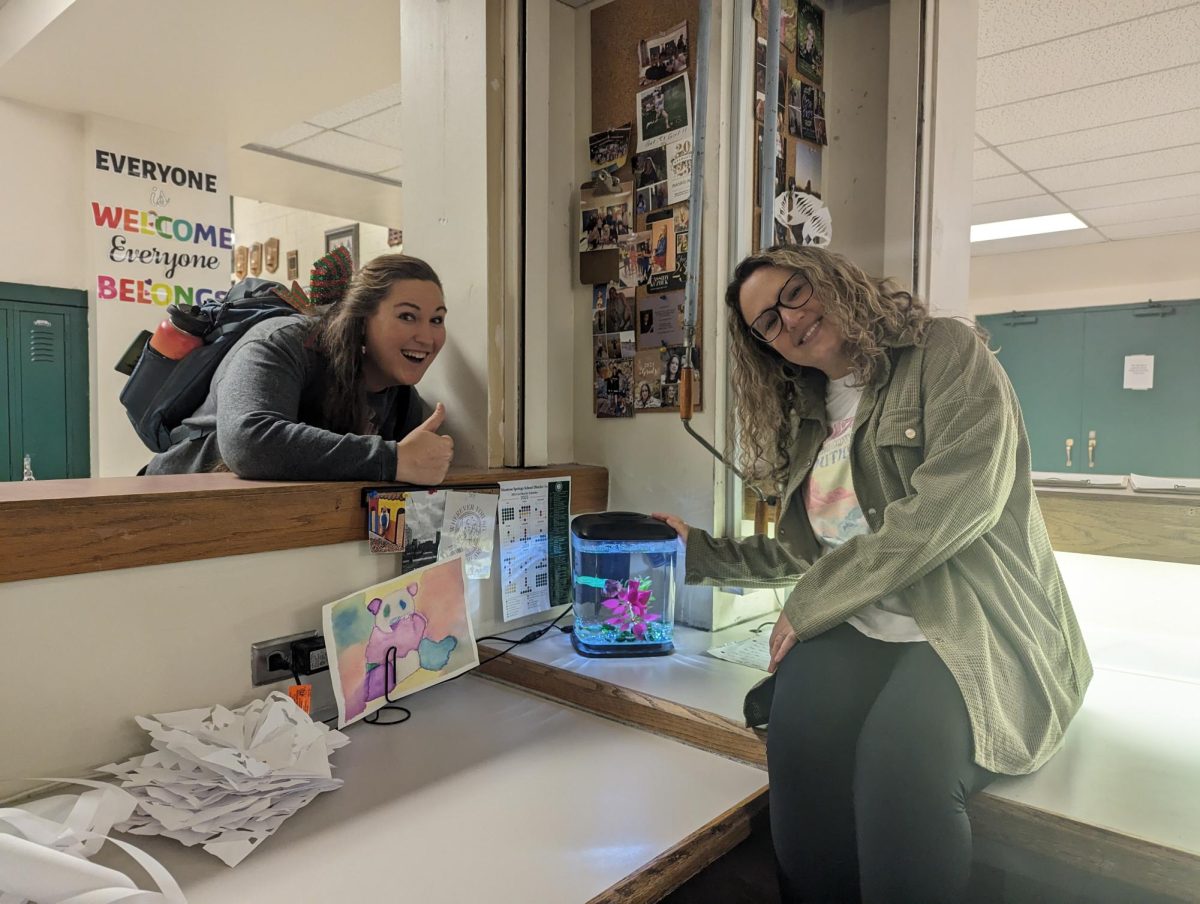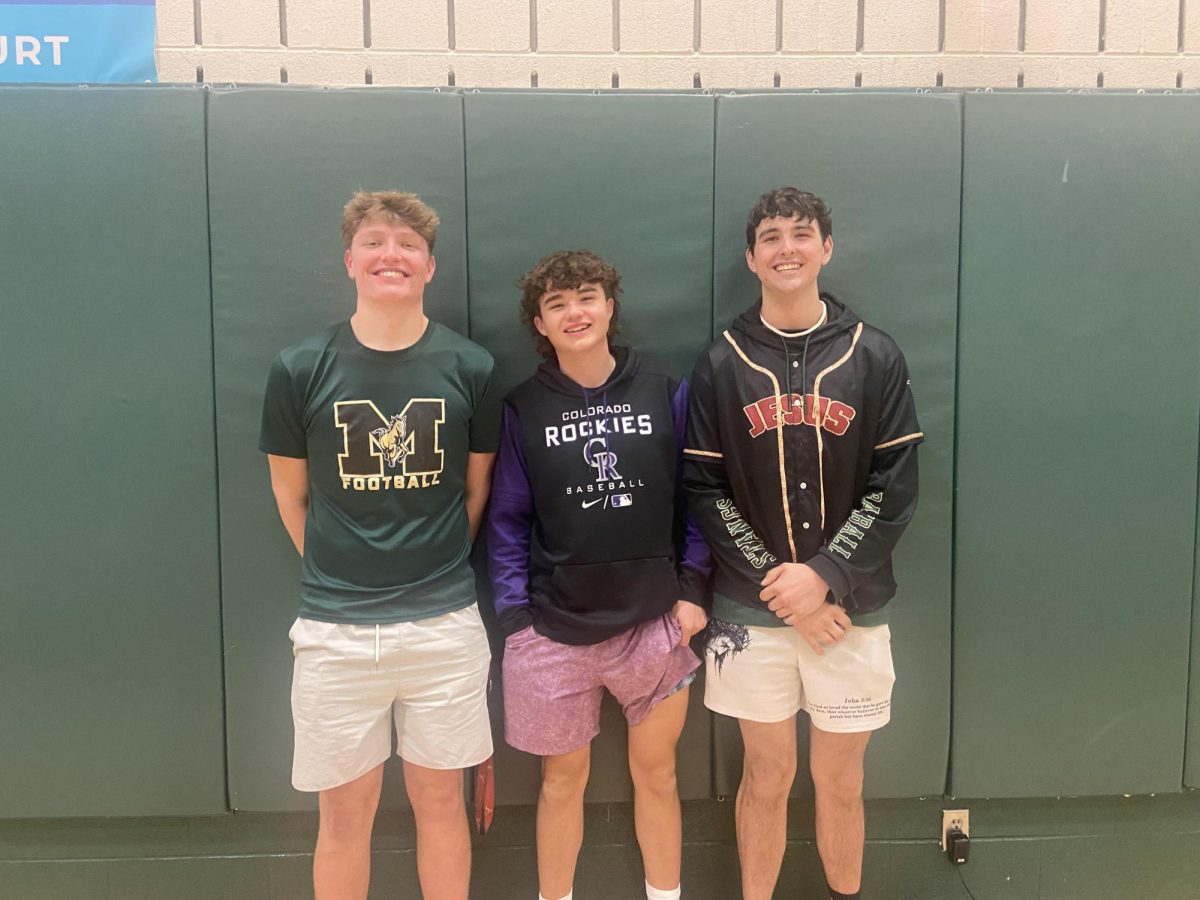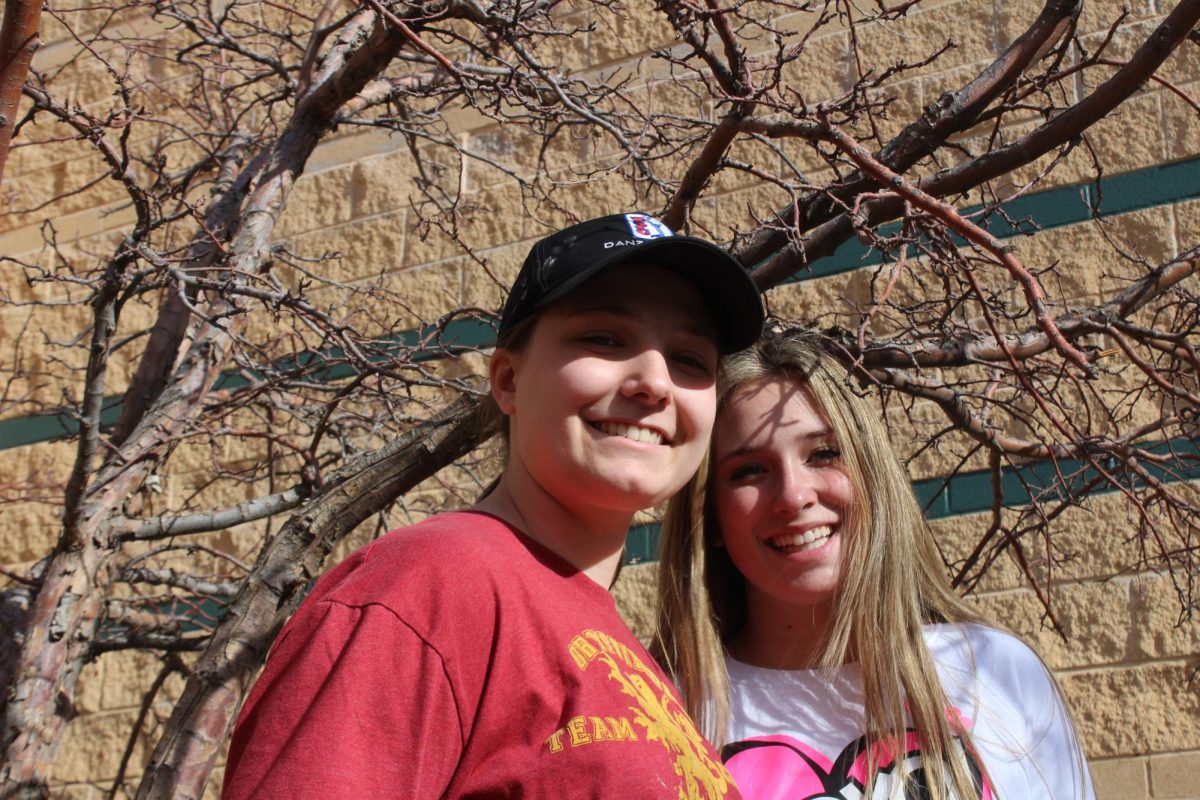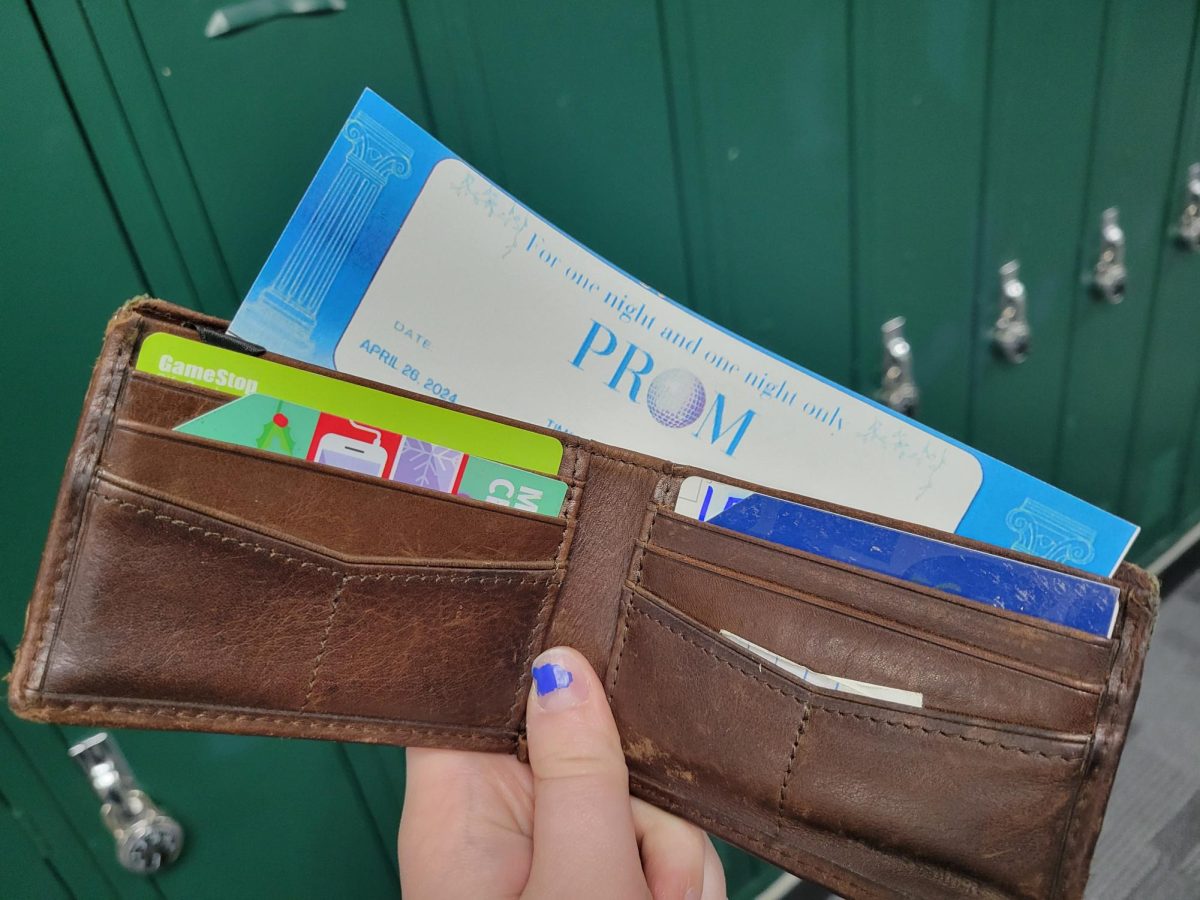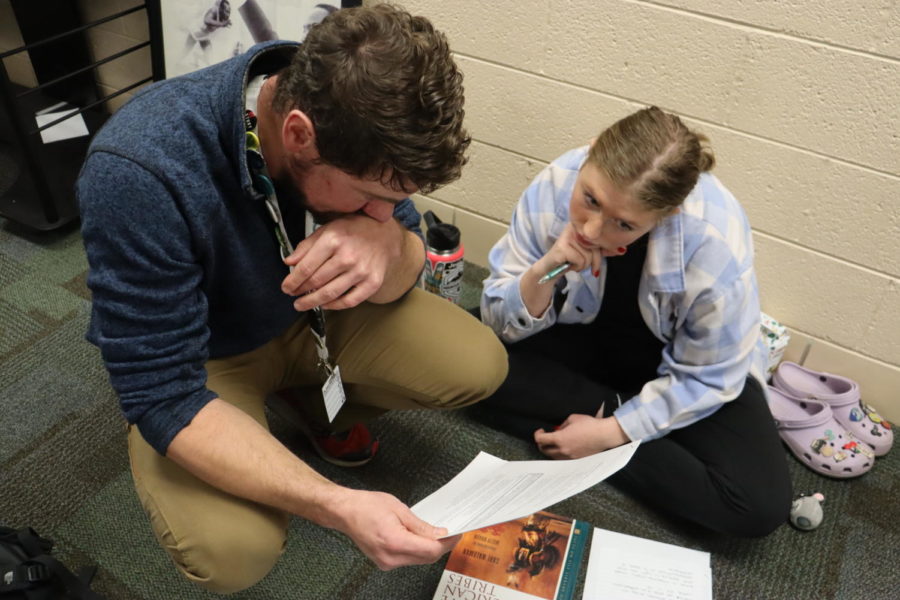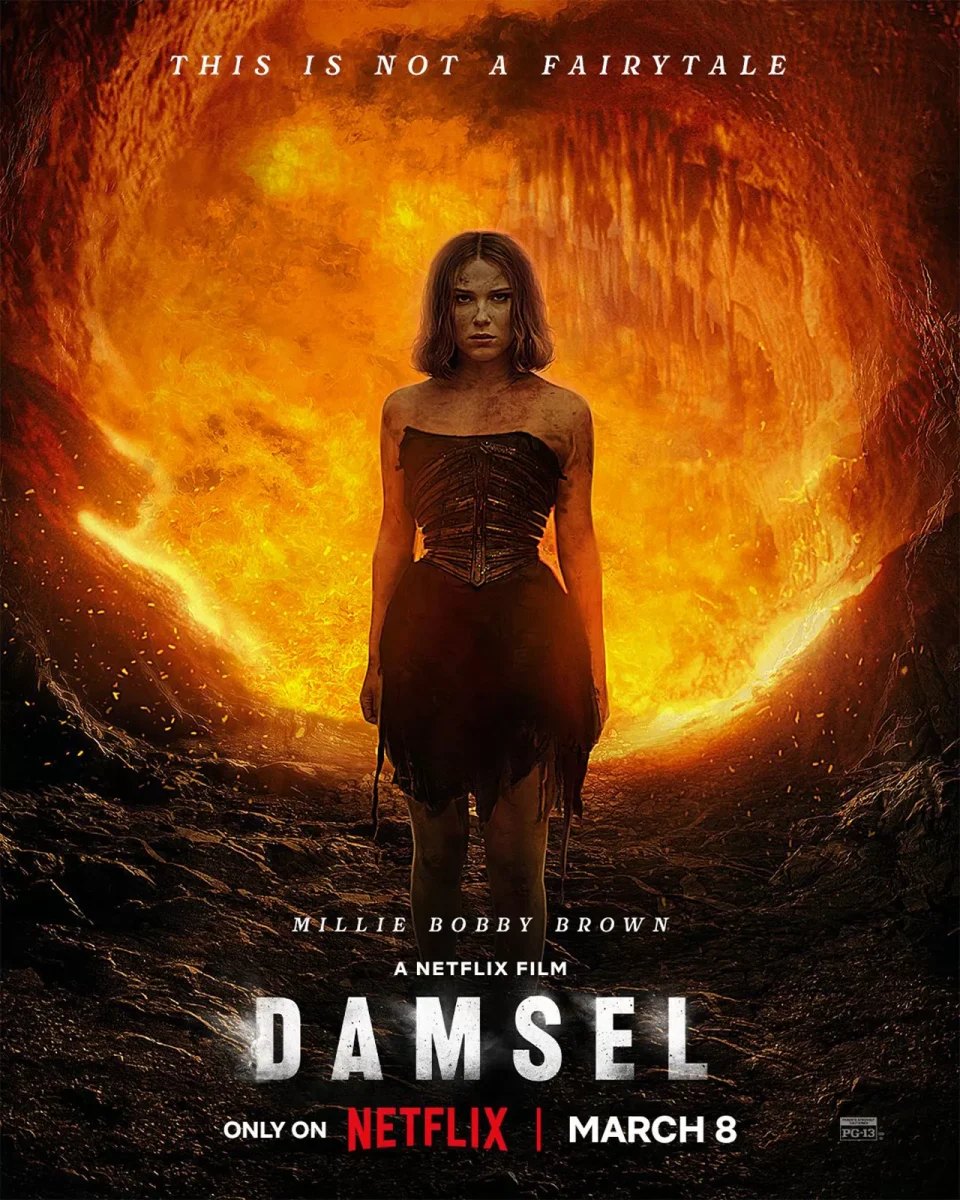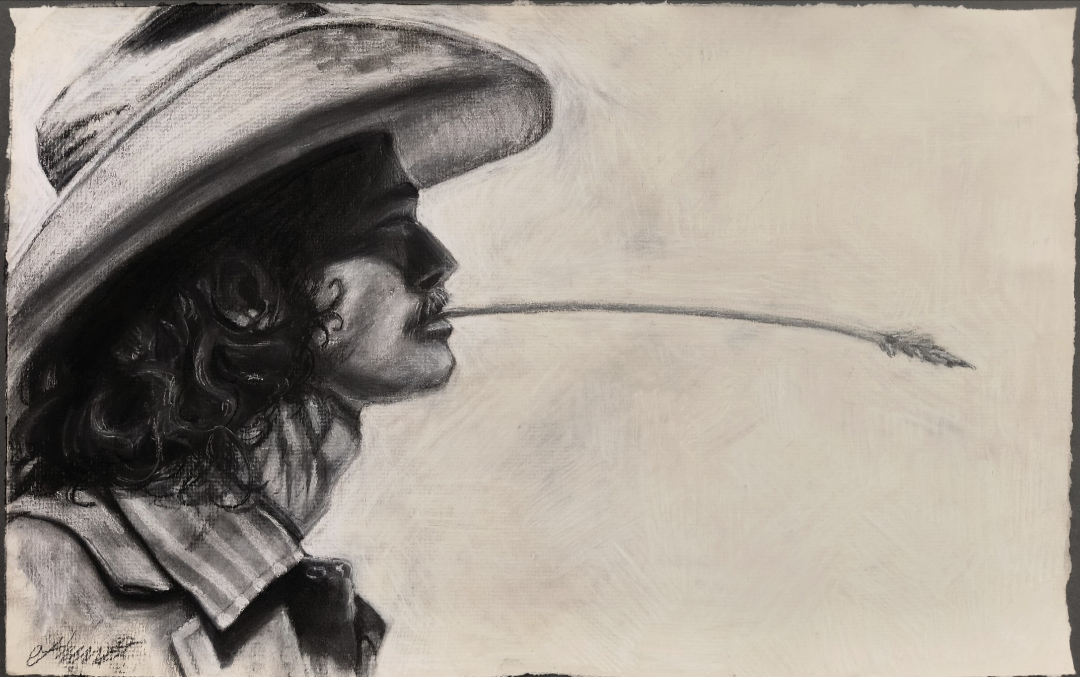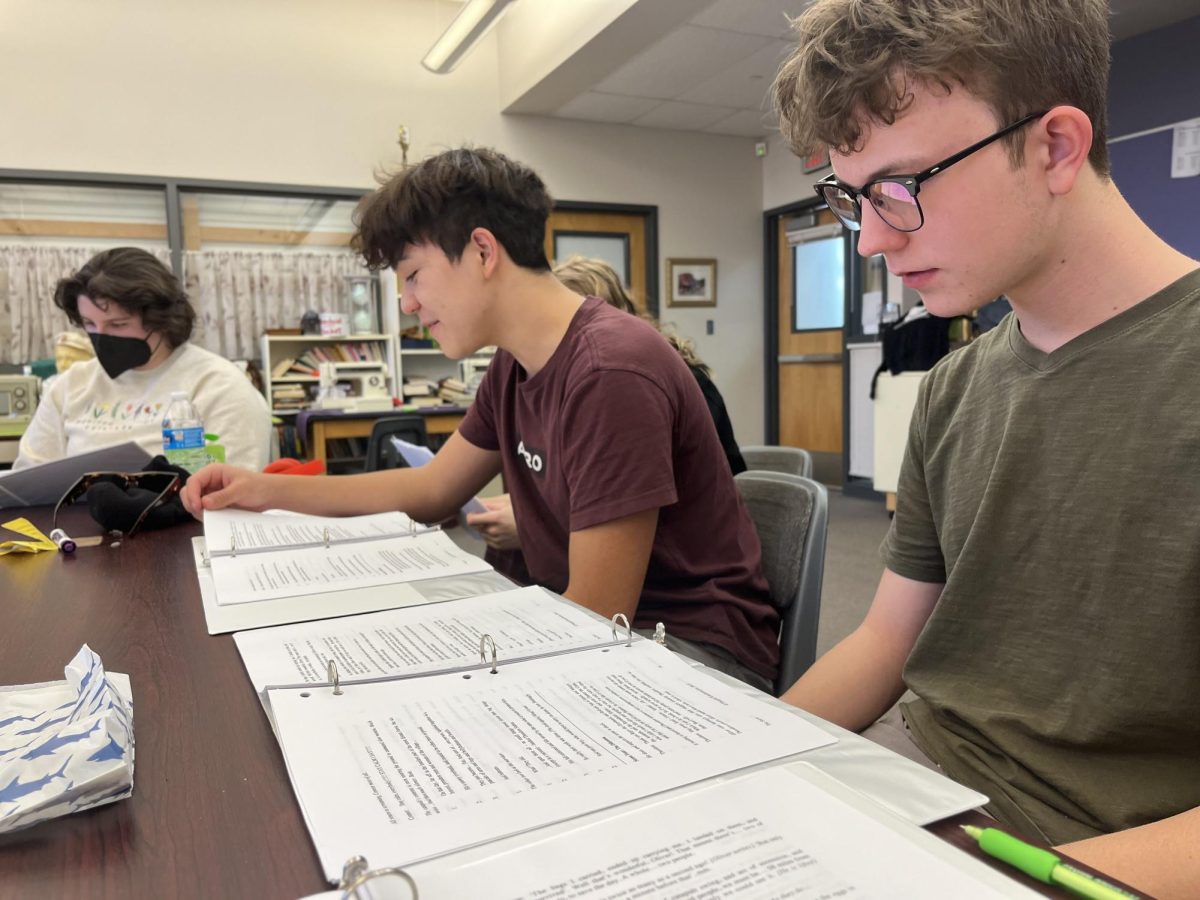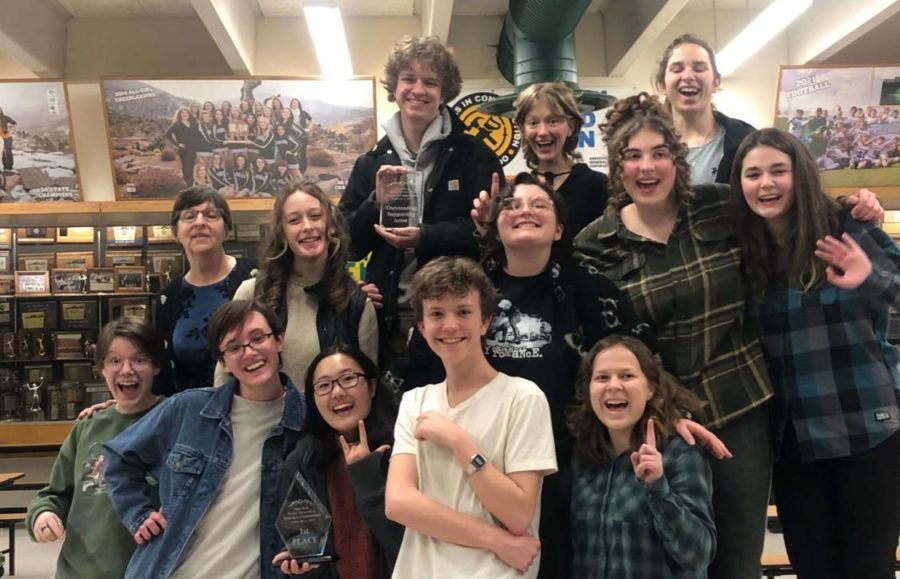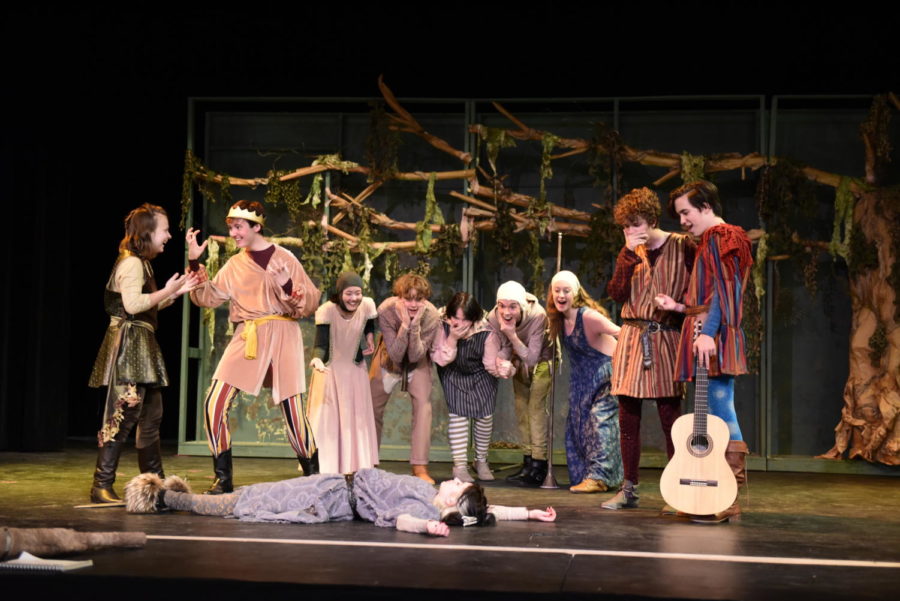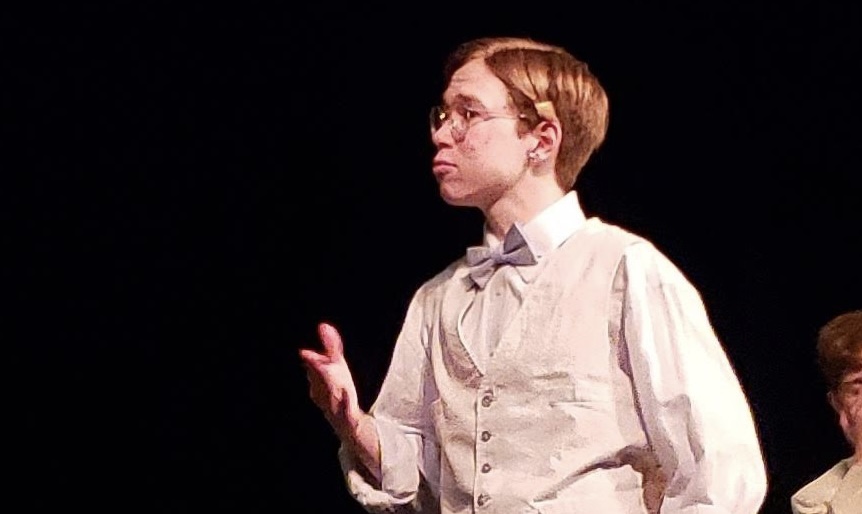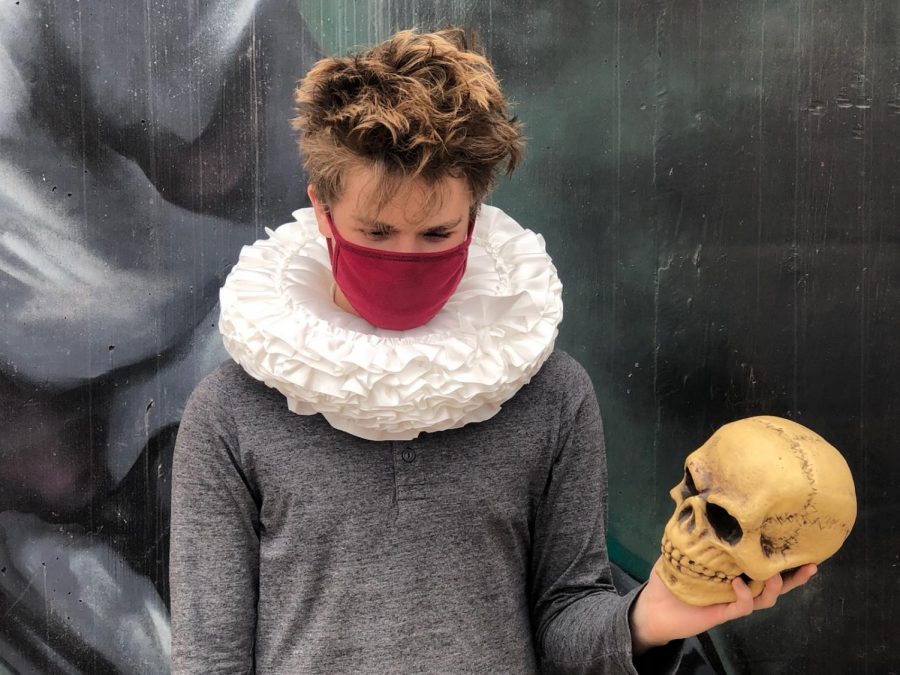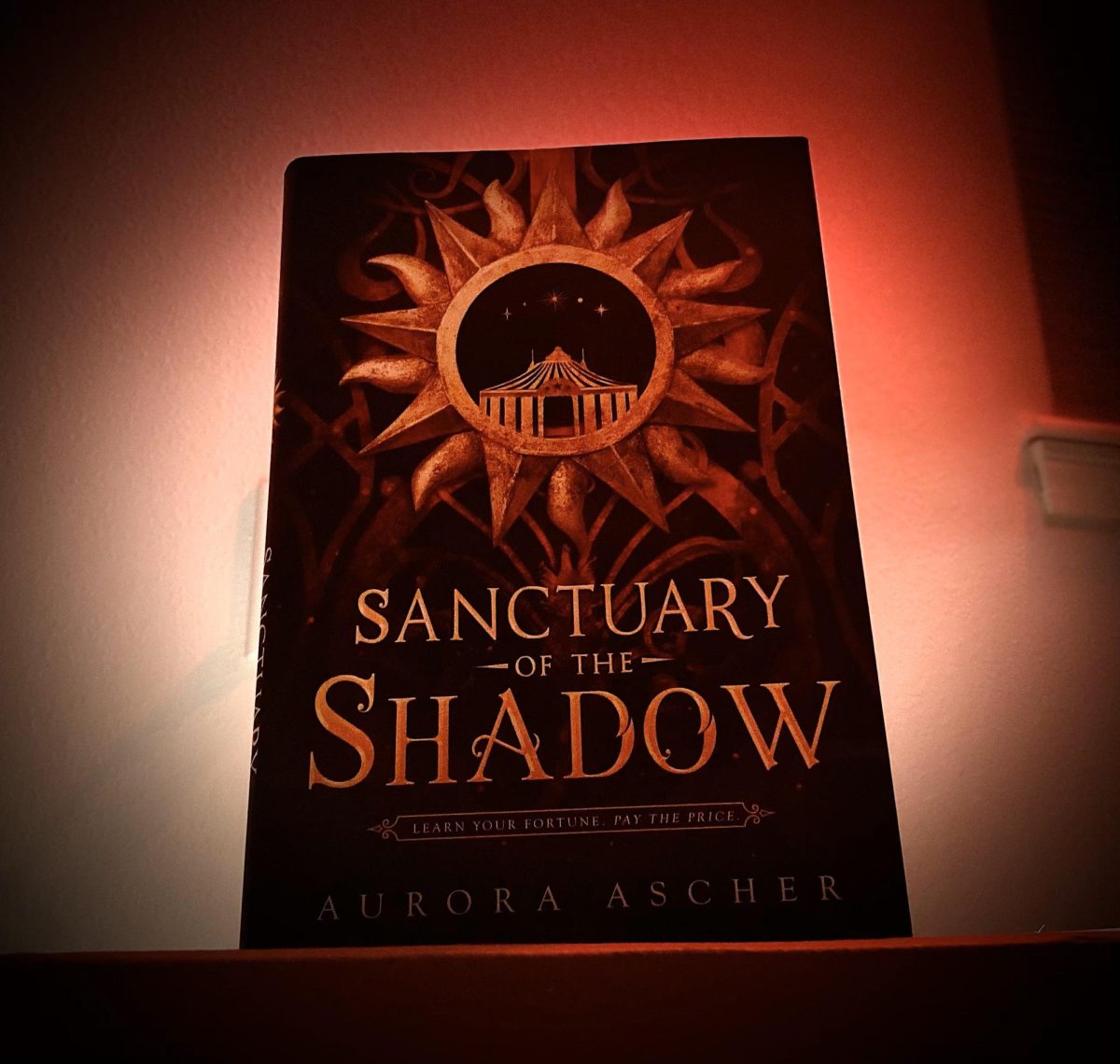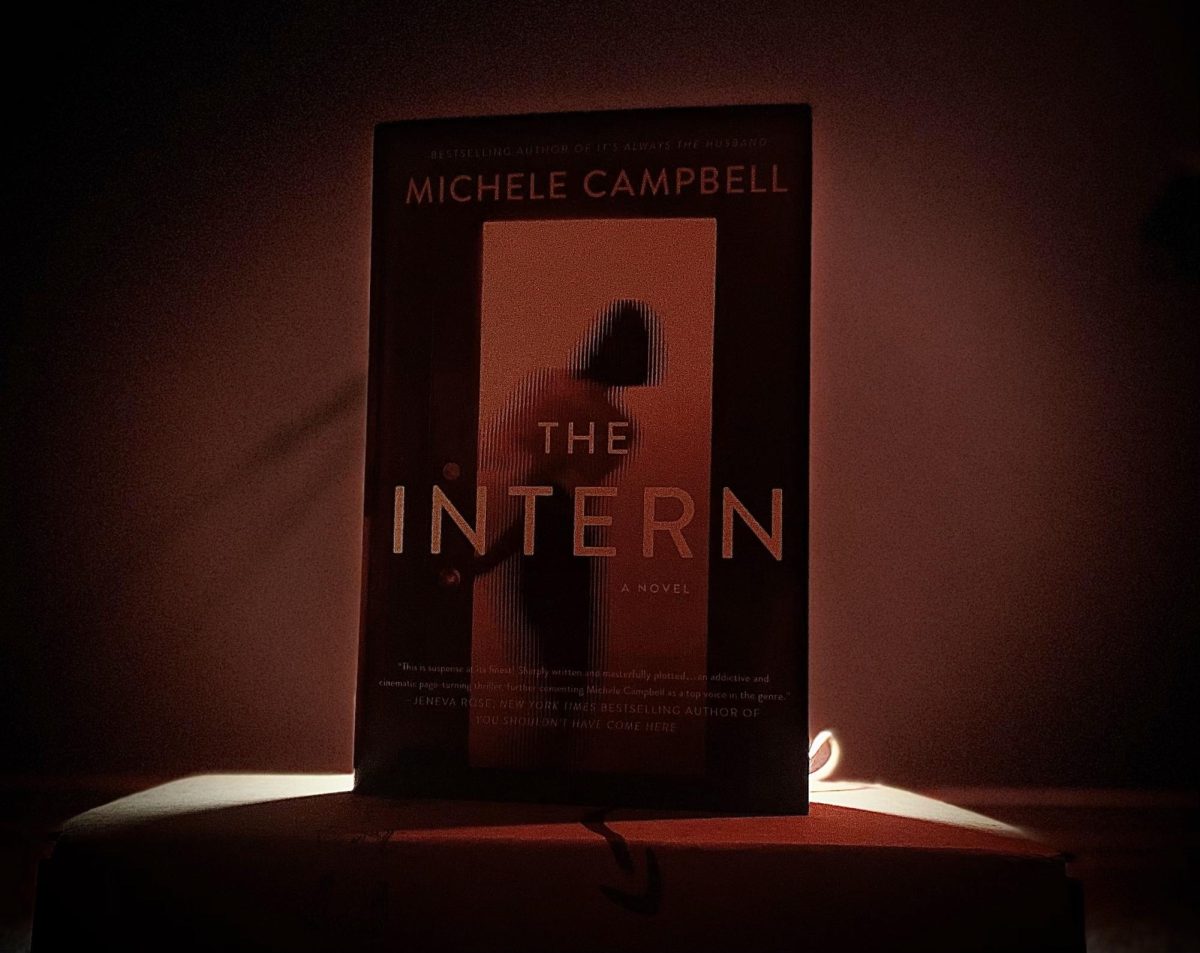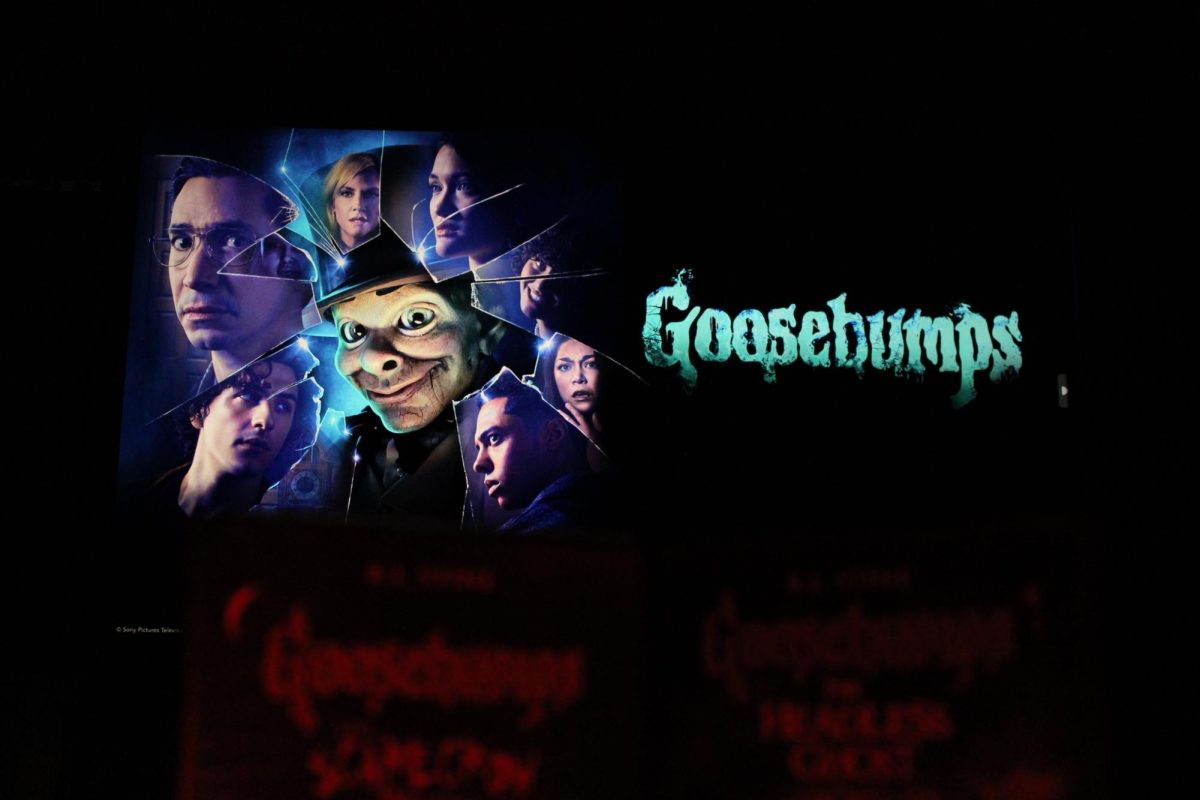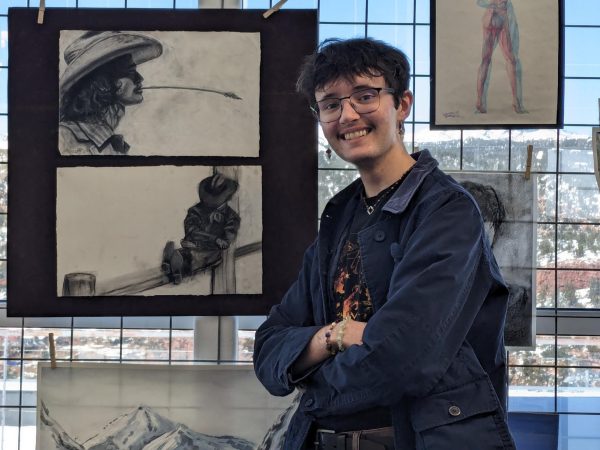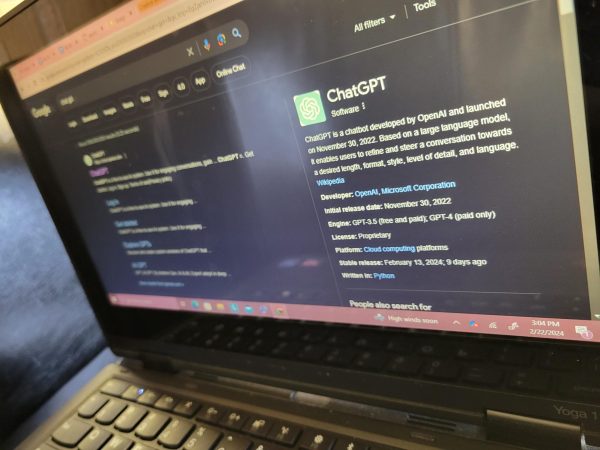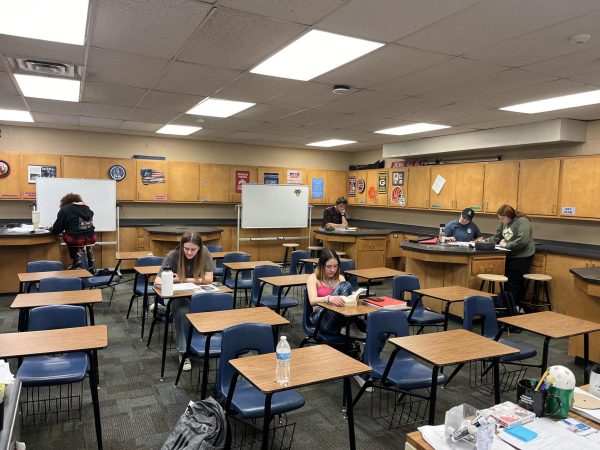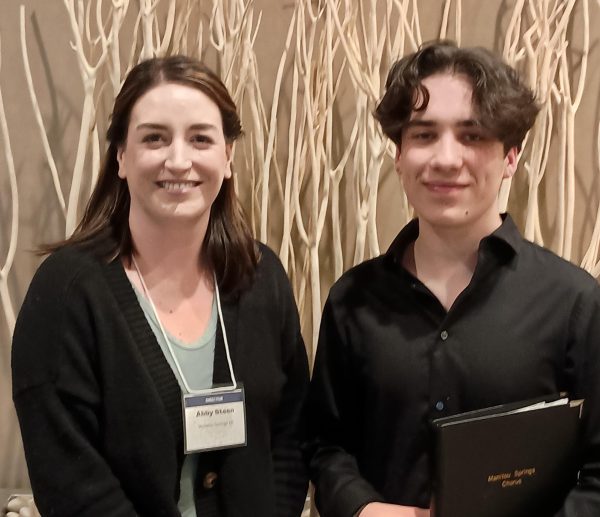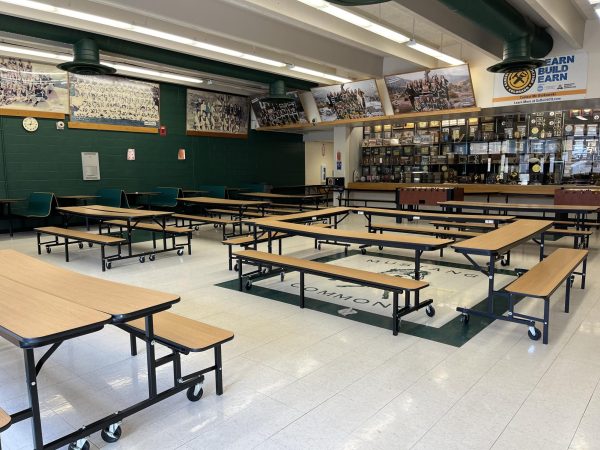A Look Inside the Lunchroom: The Magic Table
November 8, 2018
At every school, there’s always a table populated by introverts. This group typically only mingles amongst themselves, which is why explaining this social click is so interesting. At MSHS, that table is the “Magic Table”, where a group of students has picked up an interactive card game to play at lunch.
Magic: The Gathering is a card game which mixes social interaction with solid gameplay elements; creating an element of community and friendly competition that video games and most other card games completely fail to replicate. This provides introverts with a group of like-minded people with similar hobbies to interact with over common topics.
One frequent Magic: The Gathering player, Nate Perry (11), has been playing the game on a near daily basis since age eight and is an expert in the game’s mechanics, inner workings, lore and strategy. “It’s a getaway from real life and something to focus on instead of everything else,” Perry said. Not only is Magic: The Gathering a healthy outlet for personal problems, but it also helps those with social problems. According to Perry, “If your teacher has been playing for years, it’s very easy to learn. Playing with larger groups also helps to learn because you get multiple perspectives.” Magic provides a welcoming community full of people who are happy to teach the basics and allow beginners to play for themselves.
Louis Behlmann (12), a frequent at the previously mentioned magic table, cited the game’s friendly nature as a strong selling point. Behlmann, like most Magic players, doesn’t play to try their absolute hardest to win. The game is about meeting people and making new friends. Behlmann also mentioned the collectability of the cards to be particularly interesting and it’s easy to see why. Cards have different functions, art and rarities. The detailed art on each Magic card certainly adds interest to collectors due to the sheer detail, passion and talent put into each of the cards. However, not everyone who plays has to spend tons of money on collecting. Many people at the “Magic Table” will be glad to loan a deck. He also said that a great place to go is Old Colorado Springs at Dragon’s Den Card and Games. Behlmann said, “the owner of the shop is a great guy who will help you get in the game or be able to help you start the game with a bang.”
Another frequent Magic player, Bryon Cooper (12), started playing in boarding school because it gave him a fun outlet. He said that his favorite part of Magic is, “getting to know people around you.” However, he also said that “the hardest part is to learn about it because some of it can be confusing,” and that, “the cards can get expensive, the decks can get expensive, and the dice too. But you can sell that stuff for a lot of money.” The cost of cards might sound like a bad thing, however, this opens up an entire economy within Magic cards. New or experienced users can go to card shops and buy, sell and trade cards. This gives players an option to specific amounts of cards sold or traded at an individual price; allowing players to frequently change, recreate or add more into custom decks.
In the end, the popularity of Magic: The Gathering is a wonderful thing. The social roots of the game bring a nice group of people together over a common talking point. Without Magic, people who enjoy these fairly uncommon hobbies would likely struggle to discover one another among the crowd of people who have no knowledge of their interests. That special “Magic Table” at lunch is a welcoming group to many, for very obvious reasons. For those who feel as if they don’t fit in, the “Magic Table” is a great place to search for community.

